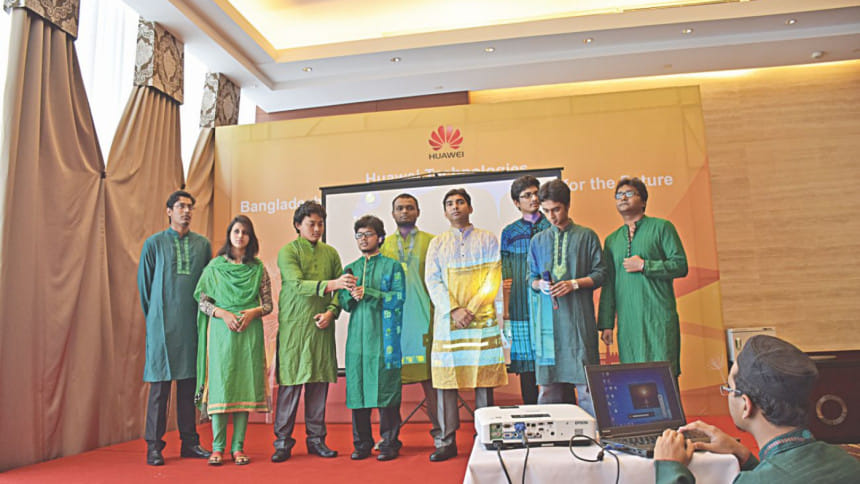Ideas in e-services take students to China

It started out as just a notice on a board at their university faculties, asking for solutions on how to enrich people's lives through e-services, with an opportunity to visit China and get training at the Huawei headquarters in Shenzhen in southeastern China. The Huawei 'Seeds for the Future' corporate social responsibility programme creates the platform.
Ten students were selected from universities across the country after they had showcased their ideas, which were nothing short of brilliant.
One of the ideas was on disseminating educational material among people in the rural areas who have no access to the internet. Files would be shared over whatever network protocol available and it would be done through something very similar to the bittorrent protocol, an efficient way of transferring files.
There would be parity data stored on every device so that everyone could have the complete file even if the uploader goes offline. The upshot to this is that there would be no central control or server, said Yeasin Ar Rahman, a student of the computer science and engineering department of Chittagong University of Engineering and Technology.
Another idea was rather simple, yet it could be complicated to execute. Creating a central database of everyone's health records, so that patients would not have to carry huge files to and from the doctors and hospitals. Instead, they could carry an ID card that would give access to hospital records.
In case of an emergency, patient history would be at the finger tips of the attending doctors. Sajid Mahmud, a third-year student of the electrical and electronic engineering department of Dhaka University, who came up with the idea, does not care who gets the job done as long as it gets done.
And there was the idea of Tasnimun Faika, who just graduated from the electronics and communication technology department of Khulna University of Engineering and Technology. She had the idea of building a phone operating system using Braille and voice for the visually impaired.
Tired of seeing people getting killed at level crossings in the country, Parash Chakma, a fourth-year student of electrical and electronic engineering department of Chittagong University of Engineering and Technology, came up with an idea of using GPS and mobile network to automate the gates at level crossings and drastically reduce the number of accidents.
They, along with five others who went to China from Bangladesh, went to Beijing first and had the opportunity to visit the Great Wall, the Forbidden City and Tiananmen Square, to observe Chinese culture and its history. They even attended a five-day crash course on mandarin during their visit to China from September 5 to September 19.
They were then flown to Shenzhen where they had classes and lab practice on 3G and 4G technology on mobile communication.
Blown away by the equipment Huawei had at their disposal to show them how things should be done in the communication sector, the students were more or less unanimous in saying that Bangladesh had a dearth of sources of such knowledge that they had acquired in Shenzhen.
“We are grateful to Huawei for giving us such an opportunity to learn all these things. We would not have been able to get this knowledge without Huawei's cooperation. This would be of utmost importance after our graduation because we dream of a Digital Bangladesh for which technical advancement is a must,” said Parash Chakma of CUET.
He said their teachers could have used some of the things they learnt there and pass them on to students in their classes.

 For all latest news, follow The Daily Star's Google News channel.
For all latest news, follow The Daily Star's Google News channel. 



Comments